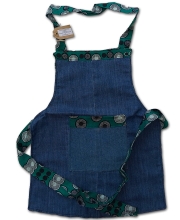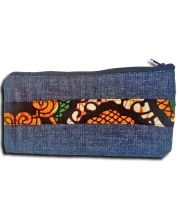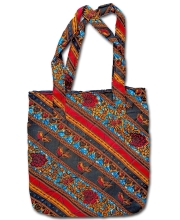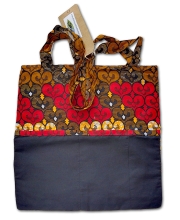What is Fair Trade?
The World Fair Trade Organisation (WFTO) defines Fair Trade as ‘a trading partnership, based on dialogue, transparency and respect, that seeks greater equity in international trade. It contributes to sustainable development by offering better trading conditions to, and securing the rights of, marginalized producers and workers, especially in the South.’
The 10 Principles of Fair Trade
1. Create Opportunities for Economically Disadvantaged Producers
This means supporting marginalised, small producers, whether these are independent family businesses, associations or co-operatives. It seeks to move towards a secure income, self-sufficiency and ownership.
2. Transparency and Accountability
Communication must be open at all levels of the supply chain and management and commercial relations transparent. Being accountable to all stakeholders and appropriately involve employees, members and producers in the decision-making processes.
3. Fair Trading Practices
This means trading with concern for social, economic and environmental well-being of marginalised small producers, and not maximising profits at their expense; conducting all trade in a fair and transparent way; protecting cultural identity and traditional skills.
4. Payment of a Fair Price
A fair price is mutually agreed by all involved through dialogue and participation which provides fair pay to the producers and can also be sustained by the market.
5. Ensuring no Child Labour and Forced Labour
Adhering to the UN Convention on the Rights of the Child, and national/local laws on employment of children; ensuring there is no forced labour in its workforce, members or home workers. Any involvement of children in the production is always disclosed and monitored and does not adversely affect the children’s well-being, security, education and need for play.
6. Commitment to Non-Discrimination, Gender Equality, Freedom of Association
No discrimination in hiring, remuneration, access to training, promotion, termination or retirement based on race, caste, national origin, religion, disability, gender, sexual orientation, union membership, political affiliation, HIV/Aids status or age. Gender equality is promoted and ensures that women are given opportunities, full employment rights and full statutory employment benefits and receive equal pay for equal work. All employees’ rights are respected to form and join trade unions of their choice.
7. Ensuring Good Working Conditions
Providing safe and healthy working conditions for all, working hours and conditions comply with national, local and ILO conventions; raising awareness of health and safety issues to improve practices.
8. Providing Capacity Building
Increase positive impacts for small, marginalised producers through Fair Trade; developing skills and capabilities of its employees or members.
9. Promoting Fair Trade
Raise awareness of the aim of Fair Trade and the need for greater justice in world trade.
10. Respect for the Environment
Maximise the use of raw materials from sustainable managed sources and buying locally where possible; reduce energy consumption and use renewable energy when possible; use organic or low pesticide production methods wherever possible; use recycled or easily biodegradable materials for packing and goods despatched by sea wherever possible.
The above list is a reduced version of the 10 Principles of Fair Trade. To see WFTO’s full list, please visit their website here: http://www.wfto.com/fair-trade/10-principles-fair-trade























